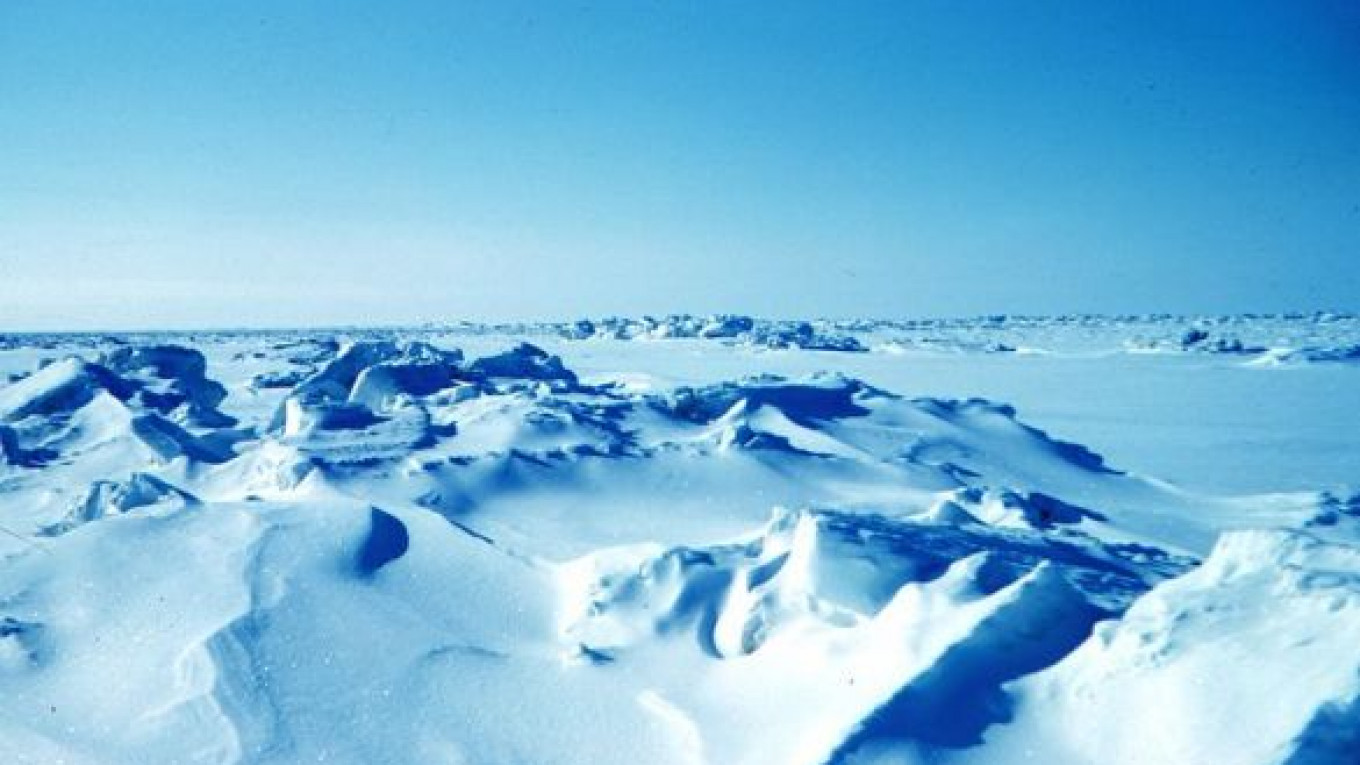When the virtual hammer came down on the country's Arctic real estate last week, state-controlled Gazprom managed to get the largest slice.
Gazprom vied with Rosneft and was awarded seven disputed areas in the Kara sea shelf and could split the eighth area, in the West Siberian sea, with the oil giant, Natural Resources and Environment Minister Sergei Donskoi told Interfax last week. He added that the companies might develop the last area together by creating a single operator, but did note this is an unlikely scenario.
Rosneft already has 16 offshore sites in the Arctic and has sent a request to the Federal Subsoil Resource Use Agency for eight additional areas, three of which Gazprom is also bidding for. Gazprom has 11 sites and is requesting 13 more.
Increased activity on the Arctic shelf is driving the Natural Resources and Environment Ministry to consider plans for how the service industry should develop there and the creation of a scientific research center, Interfax reported.
Donskoi proposed building a year-round research station in the Arctic. Now researcher expeditions disembark on ice floes and are evacuated as necessary.
"We offered to switch from a system where we spend years looking for normal ice to land an expedition on to a system of technological solutions, specifically a scientific platform on which we can place sufficient amounts of equipment and technology, and where people won't be exposed to risks," Donskoi said.
The ministry is now evacuating one meteorological station. The station was located on an ice floe with an area of 9 square kilometers, but due to warming temperatures and strong currents, the mass disintegrated into several pieces.
A year-round station would cost up to 7 billion rubles ($221 million) to build according to preliminary estimates. The research center would be able to provide hydro-meteorological, oceanographic and other scientific support, Donskoi said.
"Even if we were able to create just one such platform, it would be a breakthrough for Russia," he told Interfax. "None of the other countries have such platforms."
Contact the author at e.smirnova@imedia.ru
A Message from The Moscow Times:
Dear readers,
We are facing unprecedented challenges. Russia's Prosecutor General's Office has designated The Moscow Times as an "undesirable" organization, criminalizing our work and putting our staff at risk of prosecution. This follows our earlier unjust labeling as a "foreign agent."
These actions are direct attempts to silence independent journalism in Russia. The authorities claim our work "discredits the decisions of the Russian leadership." We see things differently: we strive to provide accurate, unbiased reporting on Russia.
We, the journalists of The Moscow Times, refuse to be silenced. But to continue our work, we need your help.
Your support, no matter how small, makes a world of difference. If you can, please support us monthly starting from just $2. It's quick to set up, and every contribution makes a significant impact.
By supporting The Moscow Times, you're defending open, independent journalism in the face of repression. Thank you for standing with us.
Remind me later.






